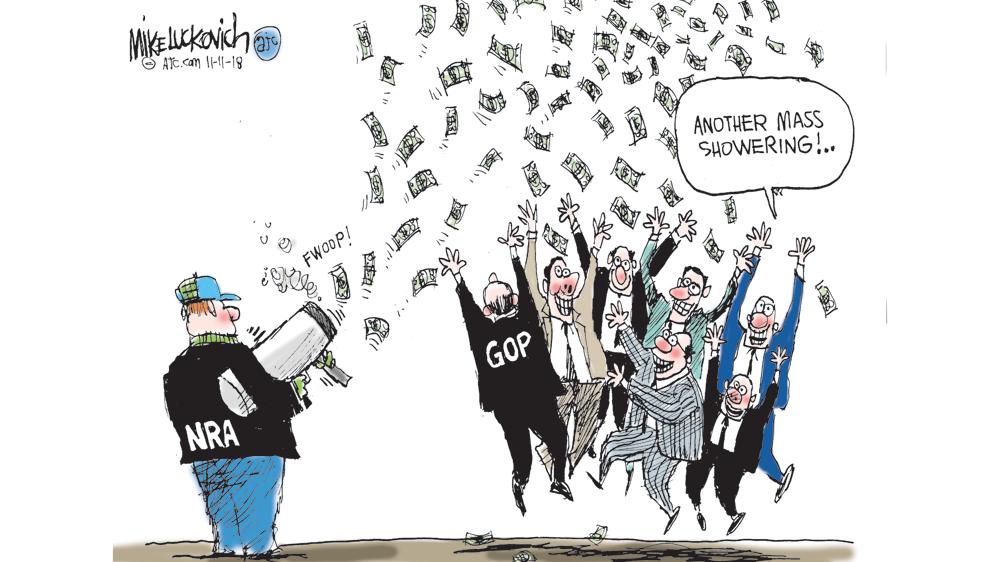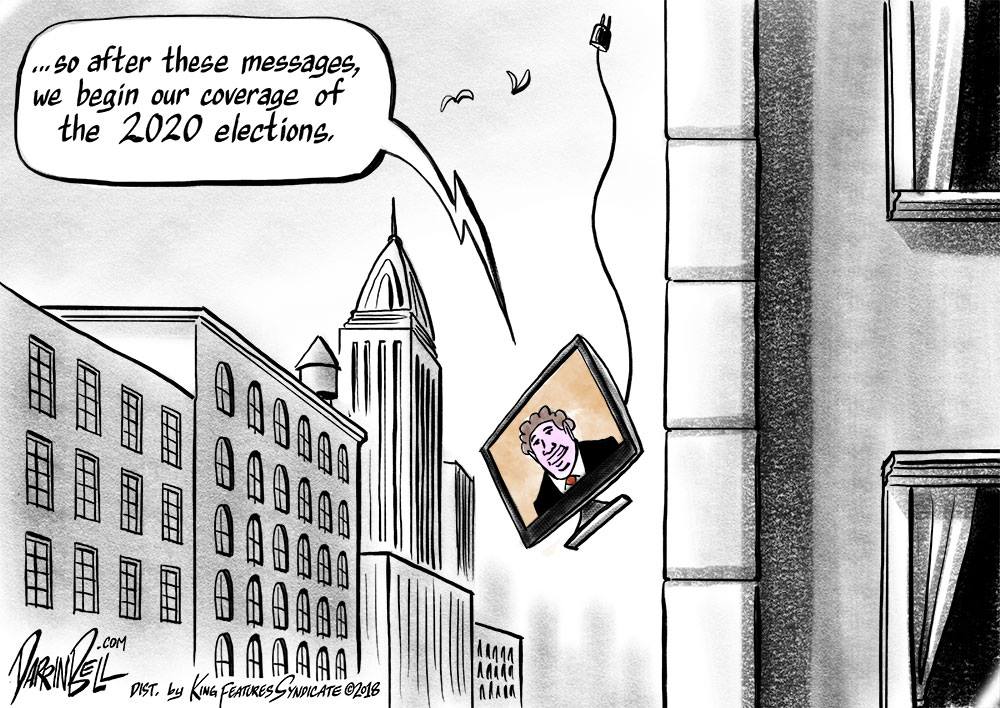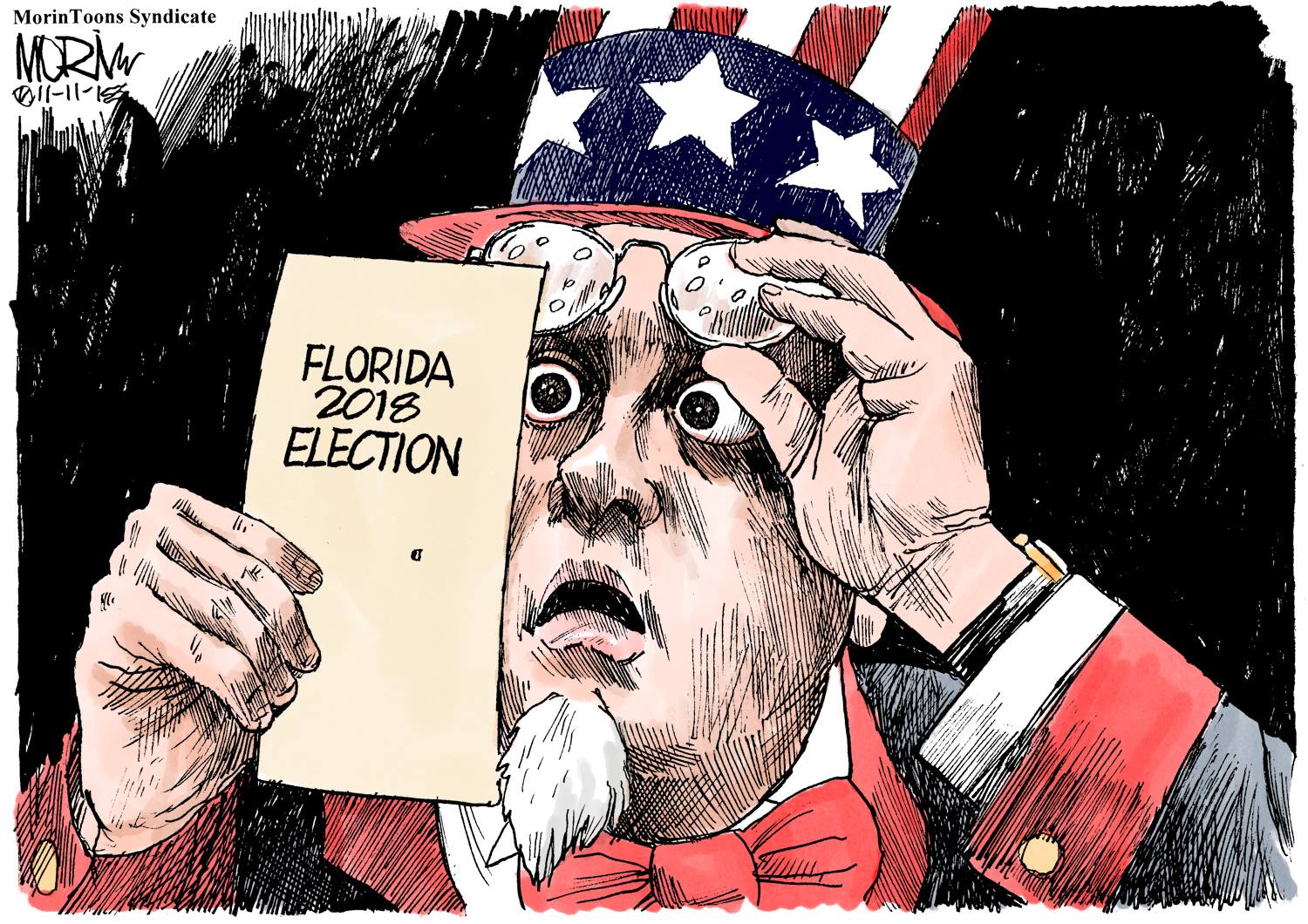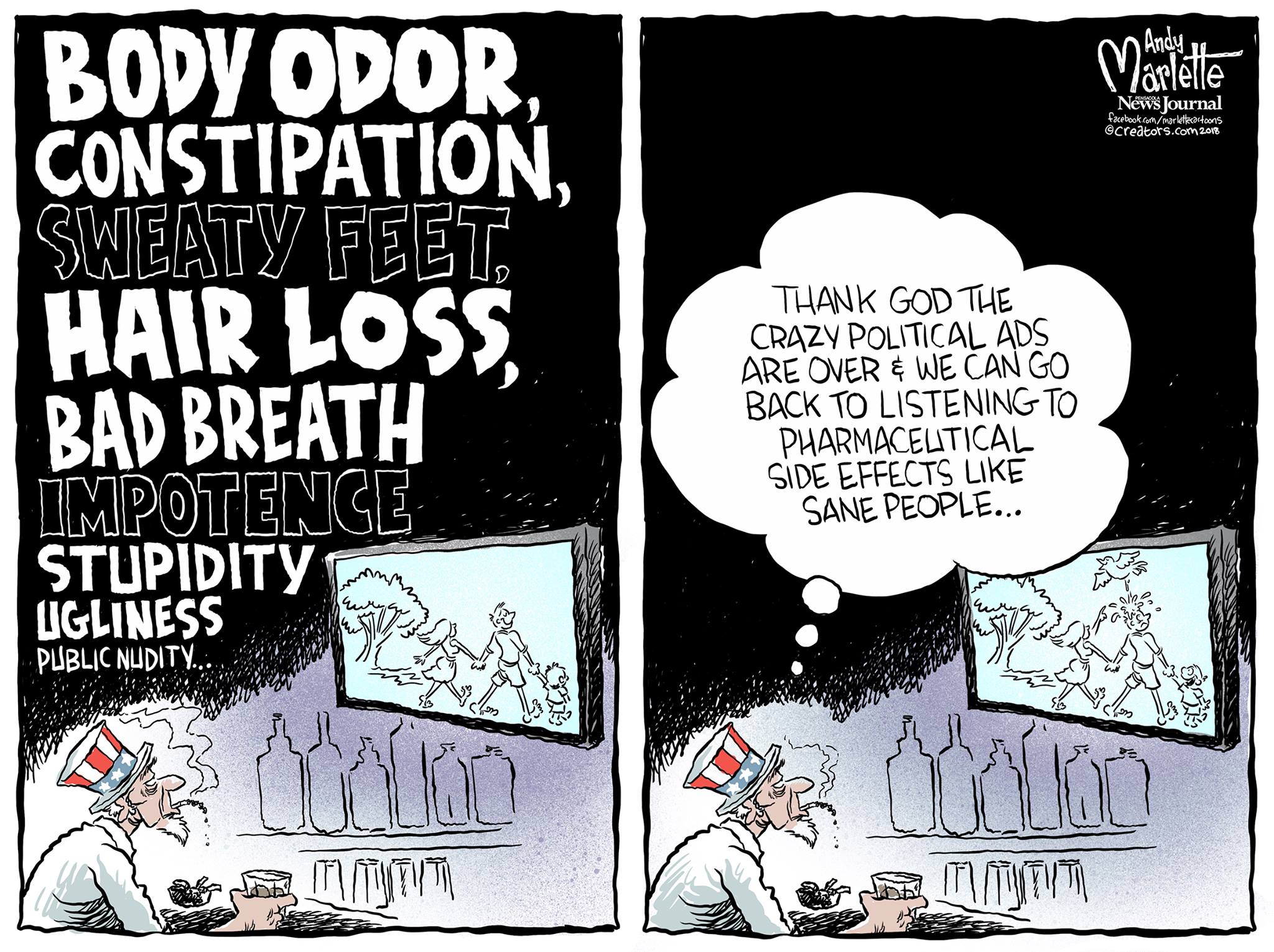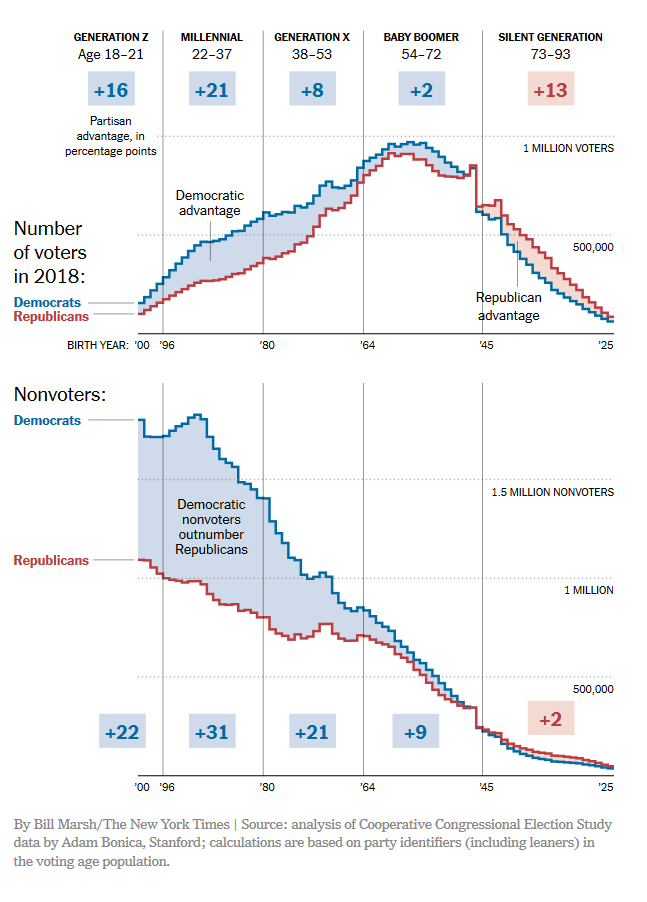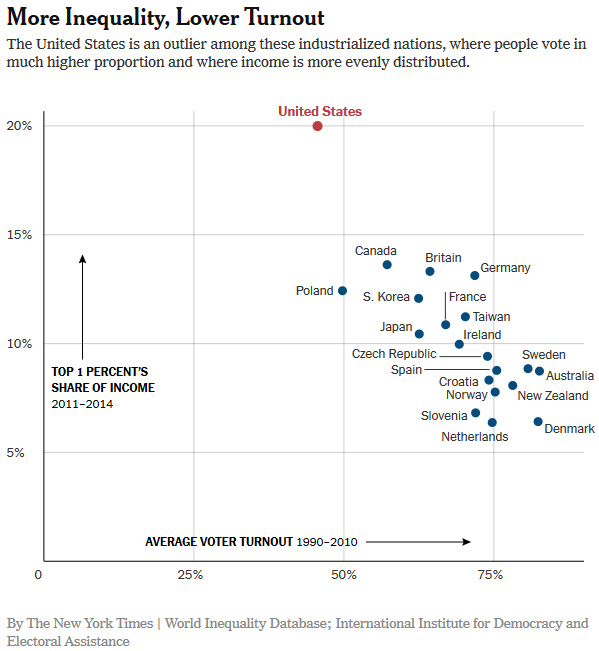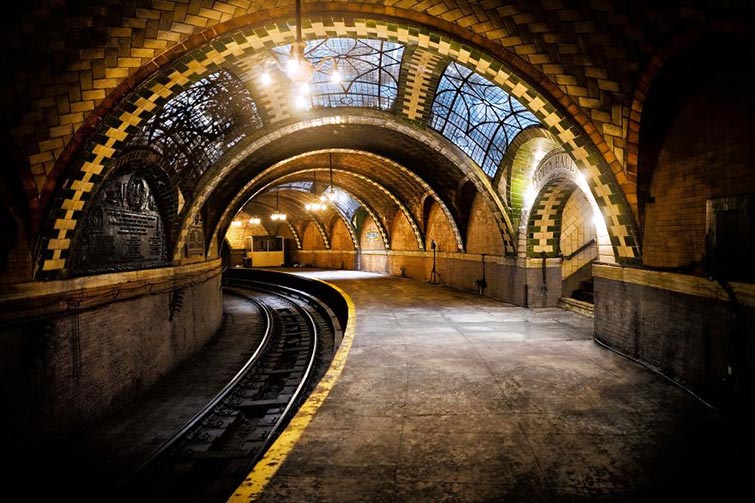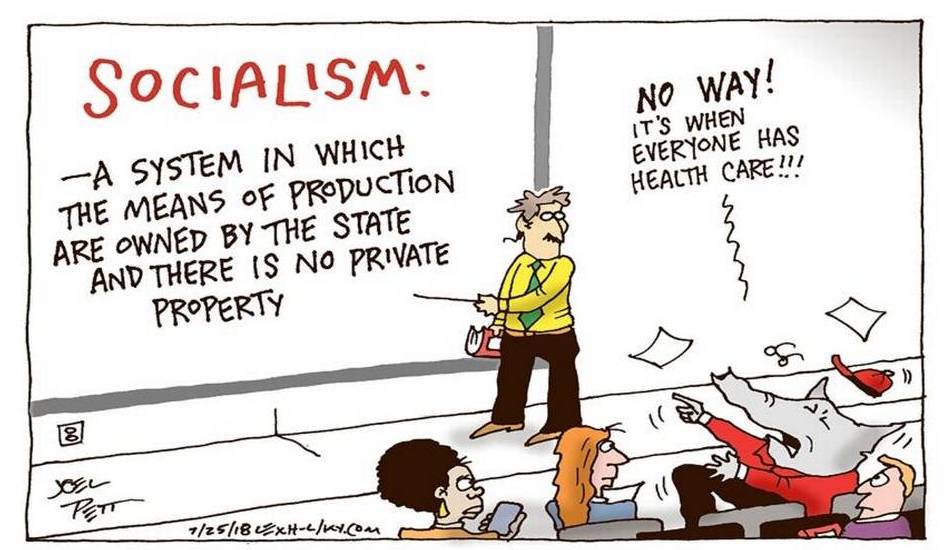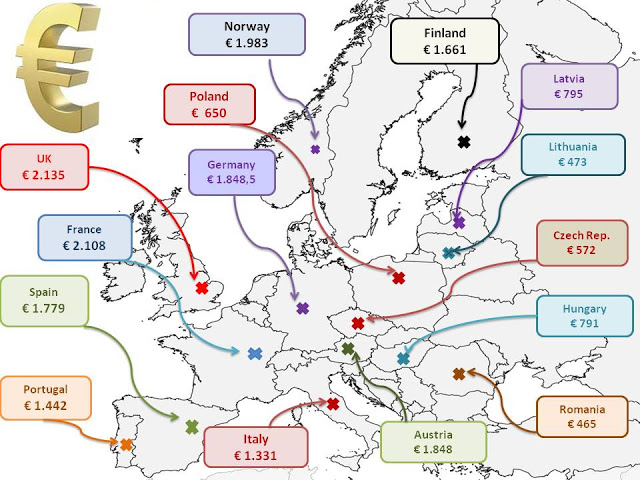The Daily Escape:

Lake Louise, Alberta, Canada in snow – photo by Yan Gao
When the President and the incoming Speaker of the House get into a televised shouting match over whether we have enough money to fund Trump’s wall, you know that things have to change in America. They’re fighting over use of a limited resource, the US government’s funding.
We now have within our means the ability to feed, clothe, shelter, and educate everyone. But, as a country, we are unwilling to do so, because we buy into neoliberal economic theory. Never in history have we had the ability to make our species as secure as we do now, but we choose instead to make as many as insecure as possible.
Until about 1980, economic growth created a level of prosperity that earlier generations of Americans could only dream about. But, economic growth no longer makes people more economically secure. We’ve become prisoners in a system that promotes permanent growth, where wages stagnate, schools decay, and Goldman Sachs sits inside our government.
The question we should be asking is: How can our politics provide an answer to our people’s need for economic security? We know that neoliberalism has reduced many of our people to states of economic insecurity. We know that our economic and social order must change, and profoundly, or face an eventual revolution. This isn’t an option, it’s a certainty.
That means that only state funding will create the (peaceful) change we need.
Here’s a big idea from Richard Murphy, a UK tax accountant:
…To put this another way, what may be the biggest programme of change ever known in human history is required in very short order. We need new energy systems; transformation of our housing stock; new transport infrastructure; radically different approaches to food that might even require rationing if we cannot create change any other way; different ways of working and new ways of using leisure time.
Murphy goes on to say:
But this must be done in a way that increases certainty. Jobs must be created on the ground…And I mean, in every constituency….but the transport and other infrastructure must be provided in that case and that does not simply mean more roads. The social safety net must be recreated. That means a job guarantee. It also means a universal basic income. And business must be transformed. Since that process will be incredibly expensive this requires capital and if that means state investment and co-ownership, so be it.
Murphy says that if this was wartime, our government would find the money to fund radical change. He says that we can no longer just extract higher taxes from the rich to solve our funding requirements, we need to create a vision, a plan and funding to achieve the change required.
One way to fund a portion of these requirements may be to restrict funding for the military, to eliminate tax breaks and subsidies for corporations. More from Murphy:
The time for pussy-footing is over. We know what we need to do. We know the scale of the issue. We know the reasons for acting….and we know we can pay for it. This is not left or right as we know it. And any party not addressing it is part of the problem and not the solution.
He’s suggesting deficit financing for societal gain. What are the chances that revolutionary change can happen? Almost zero today. Left to our political class, we’re just going to keep on doing what we’re currently doing, that is, until we can’t.
As we said yesterday, people say, “It’s the system, we can’t change it”.
But, in the Middle Ages, the exact same thing could have been said about feudalism. That institution was deeply entrenched, it was “how things are, and were meant to be.” It was inconceivable that something like democratic government could ever succeed feudalism, yet it did.
Today, our revolutionary task is to allow democracy to express its full potential to reshape and revitalize our social and economic life.
We must begin by setting priorities, taking resources from areas that drain the economy. Then we need to devote those resources to things that will make for a healthier, more secure economy.
One example is to adjust the priority that military defense spending has in our economy. Let’s stop being the world’s policeman, nobody wants us to do it. Then, use the excess resources to build infrastructure, and renewable energy systems.
Everything else we need then will become easier to build.
It’s a matter of deciding what our priorities are, and voting for those who agree with that vision.




